THE WASHINGTON POST: Joy, fear and confusion in Damascus as Syrians welcome life after Assad
Rapturous celebrations in the streets of Damascus were tempered by trepidation over whether the Syrian capital’s new rebel caretakers could deliver a better future.
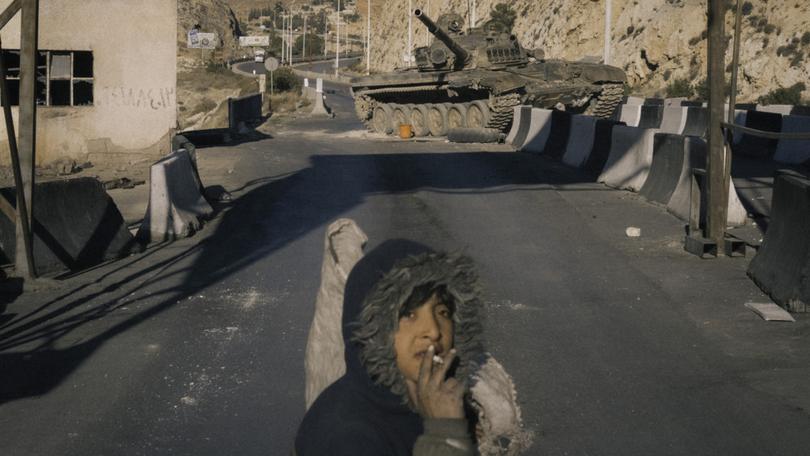
The three-starred revolutionary flags hoisted over the central squares of Damascus hold the promise of a free Syria.
But the rapturous celebrations in the streets Monday were tempered by trepidation over whether the country’s new caretakers could deliver on that dream.
The sudden fall of Bashar-al Assad in the early hours of Sunday morning has left the Syrian capital in a state of stunned disbelief. A day later, some residents were emerging for the first time to take in the changed face of the city.
Sign up to The Nightly's newsletters.
Get the first look at the digital newspaper, curated daily stories and breaking headlines delivered to your inbox.
By continuing you agree to our Terms and Privacy Policy.They picked through the homes and palaces of the ousted president and his family, marvelling at the wealth they had accumulated over more than half a century of dynastic rule, as Syrians sank ever deeper into poverty.
“We just want to feel the moment,” said Siham Bader, 55, dressed in a baby-blue coat, as she joined the crowds wandering through an ornate office that once belonged to Assad’s wife, Asma. “We have joy and hope.”
Like others, though, she voiced concerns about the armed groups that are now in control: “We don’t know anything about them.”
The breakneck rebel advance that began in the northern province of Idlib two weeks ago and swept mostly unopposed through city after city was led by Hayat Tahrir al-Sham (HTS), a Sunni Islamist militant group that has tried to shake off its previous ties with al-Qaeda and present itself as the face of a unified Syrian opposition.
Its members were out in force on the streets Monday - posted at ministries and diplomatic buildings - attempting to reassure a rattled population, including the city’s religious minorities, that they can bring stability to a shattered state, traumatised by more than a decade of war and upheaval.
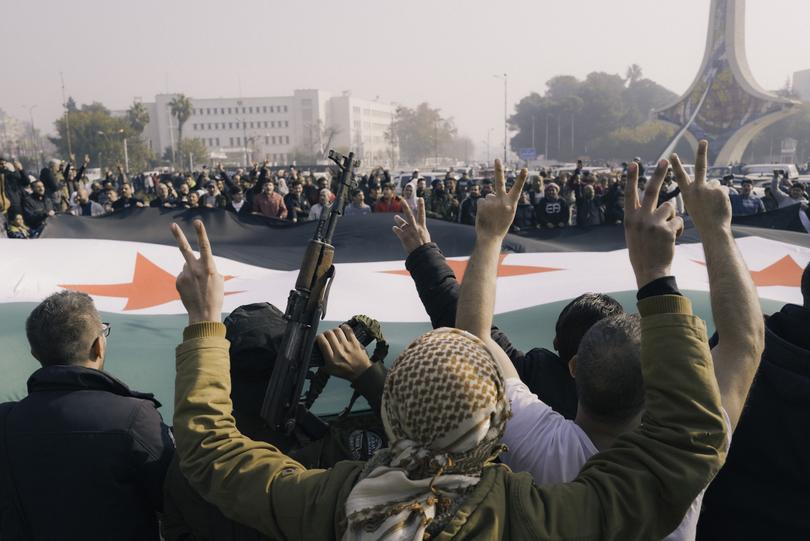
“After 14 years of torture and assassinations and destruction, we are very, very happy to be able to start a civil state,” said Abu Abdulrahman, an HTS commander stationed in the city’s Umayyad Square, which has become a hub for celebrations. Like other fighters, he spoke on the condition he be identified by his nom de guerre, citing security reasons.
Around him, khaki-clad men armed with Kalashnikovs and RPGs spilled out of pickup trucks as residents drove by, some honking or stopping to take selfies. The square erupted in deafening bursts of celebratory gunfire, which commanders tried in vain to silence.
After widespread looting a day earlier, HTS is attempting to reactivate the city’s police force to restore some semblance of law and order, said Abdulrahman. But there was no sign of them yet.

“There’s not a lot of security,” conceded Abu Malik, a 23-year-old fighter who said he took up arms in Syria’s civil war at the age of 13. Like many of the other young men who have poured into Damascus, he was from Idlib, the rebel-held enclave where HTS quietly amassed power in recent years and planned its sweeping offensive.
As he spoke, smoke rose from a nearby intelligence building that had been struck by an Israeli airstrike a day earlier. For some, the aerial bombardment - which Israel’s foreign minister said Monday is aimed at “weapon stores and chemical weapon capabilities” - is the most pressing security concern.
Khalid Kassah, 27, said he had come to the square to let “the world see my happiness.”
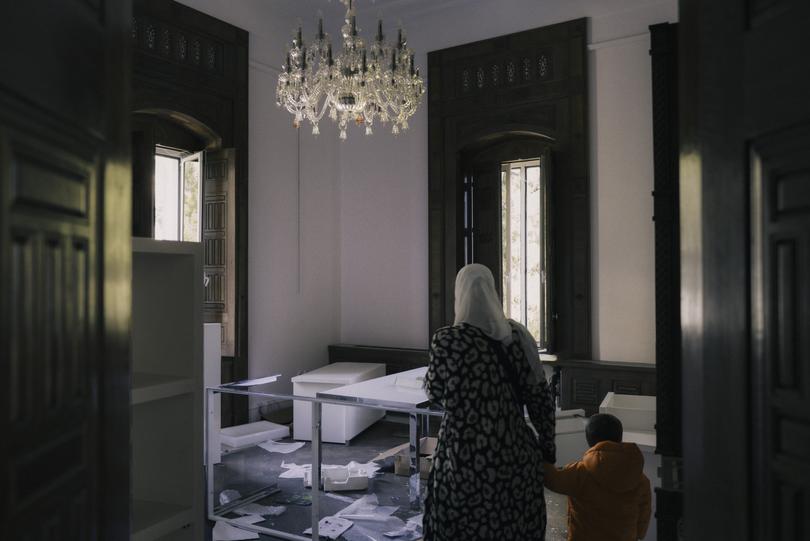
His feelings, though, were more complicated. “We have fears, because Syrian society is a variety of sects,” he said. “This is one of the real concerns of the people of Damascus. But for the first time in my life, we are feeling freedom.”
Outside Asma al-Assad’s former office, another commander tried to reassure a crowd of concerned residents that HTS had a plan to counter the collapse of the Syrian pound, which has fallen to record lows since Assad’s ouster.
The Turkish lira will be gradually introduced, the commander told them, just like it was in Idlib. He referred questions to his English-speaking companion, a fighter from India with a thick beard who joined al-Nusra Front, the former al-Qaeda offshoot, in the early days of the civil war.
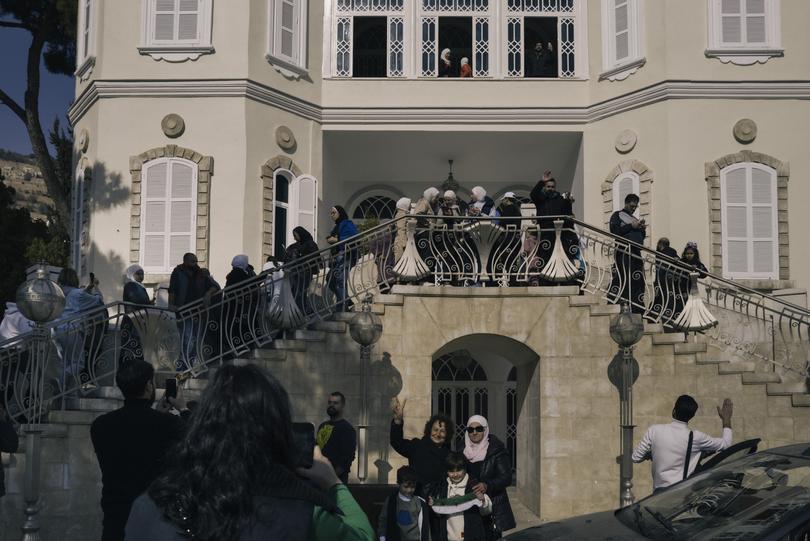
It will take a week to get things “under control,” the Indian fighter said, declining to give his name. What happens next will be up to Syrians to decide, he added, saying he was only there in a “support role.”
The loose coalition of armed groups that took part in the fight in recent weeks now control about two thirds of Syria, with the remainder divided between Kurdish and other rebel forces. The shape of the new Syrian state will depend in large part on how much common ground can be found between these various factions, who have fought against each other and at cross-purposes over the years.
Syrians everywhere say they are hoping for a future free of bloodshed.

The highway that stretches from the Lebanese border to Damascus was largely devoid of traffic Monday. Cars wove past debris from Israeli airstrikes and the hulking remains of damaged tanks. Just before the entrance to the capital, a body lay in the road. Army checkpoints sat abandoned. Pictures of Assad - which once stared down at Syrians from buildings and roadways and light poles - had been ripped and defaced.
Inside the office of the former first lady, crowds broke out into spontaneous dancing and ululations. “One, one, one, the Syrian people are one,” they chanted. Mirrors had been smashed and furniture overturned.
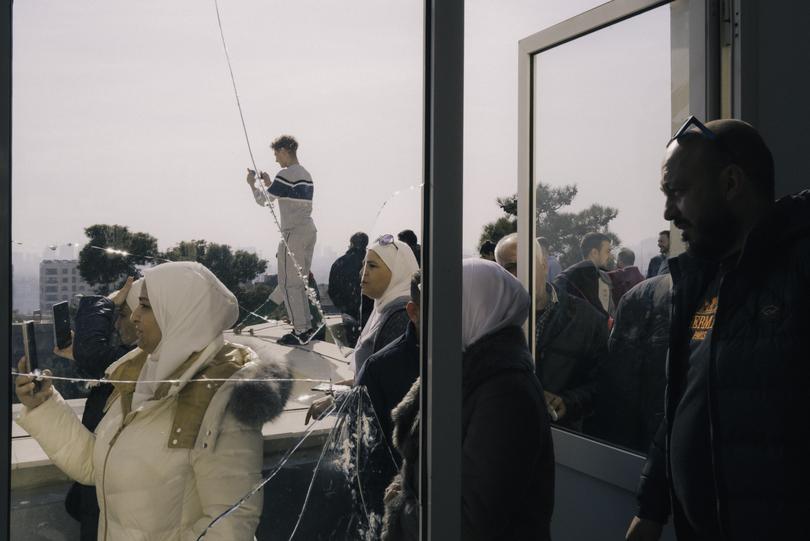
Hani Qusebatuy, 27, had paused on the sweeping stairs leading up to the building. He had been stuck in Syria for the past six months, banned by the government from leaving the country after liking critical posts online.
Now, he said, “I’m free.”
© 2024 , The Washington Post
